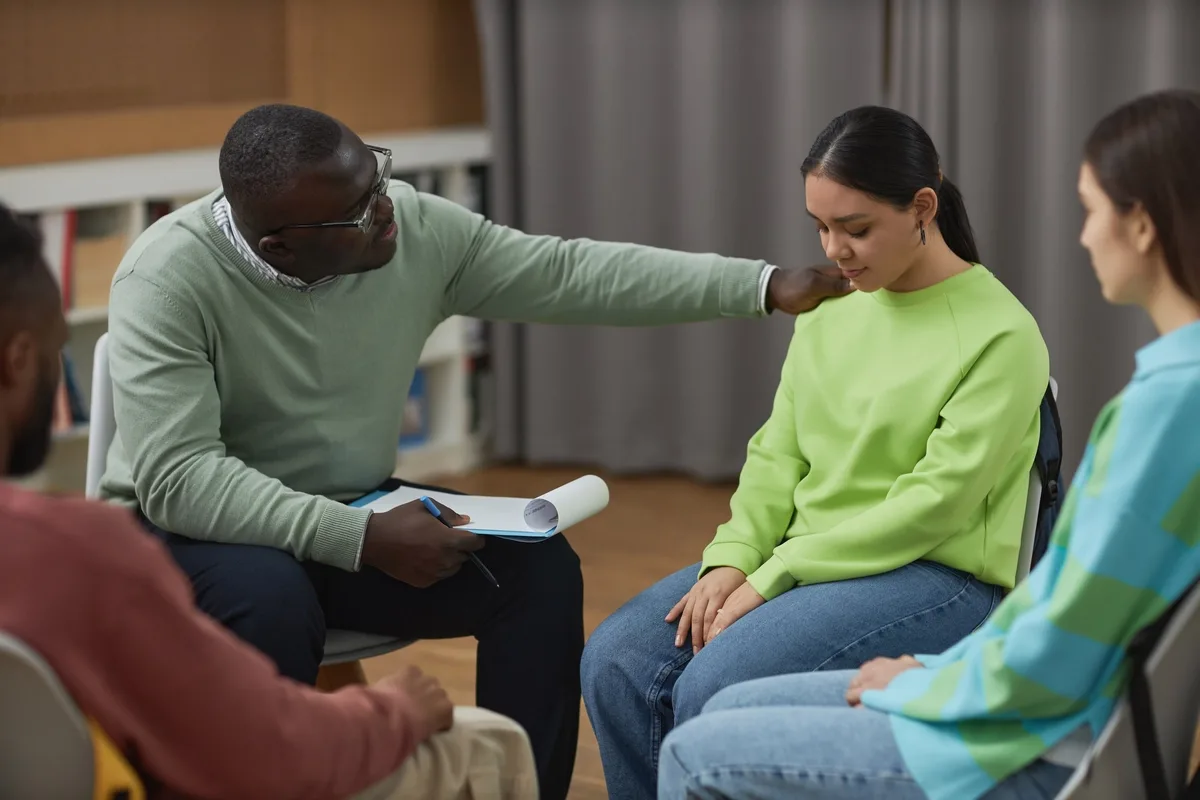24/7 Helpline:
(866) 899-221924/7 Helpline:
(866) 899-2219
Learn more about PTSD Treatment centers in Greenwood
PTSD Treatment in Other Cities

Other Insurance Options

Horizon Healthcare Service

Ambetter

Health Choice

EmblemHealth

Health Net

Coventry Health Care

Magellan Health

Highmark

GEHA

Access to Recovery (ATR) Voucher

Group Health Incorporated

BHS | Behavioral Health Systems

Holman Group

American Behavioral

Absolute Total Care

Sliding scale payment assistance

Self-pay options

Premera

Cigna

Health Partners












